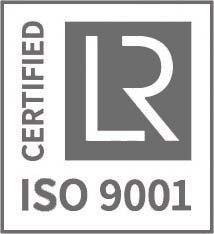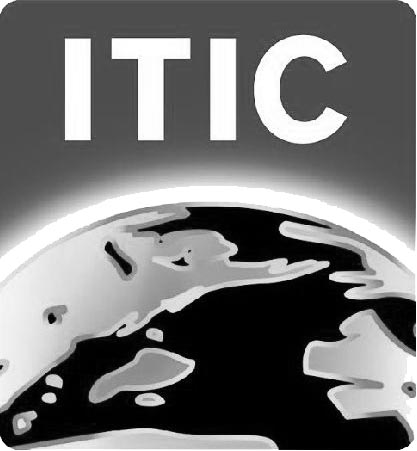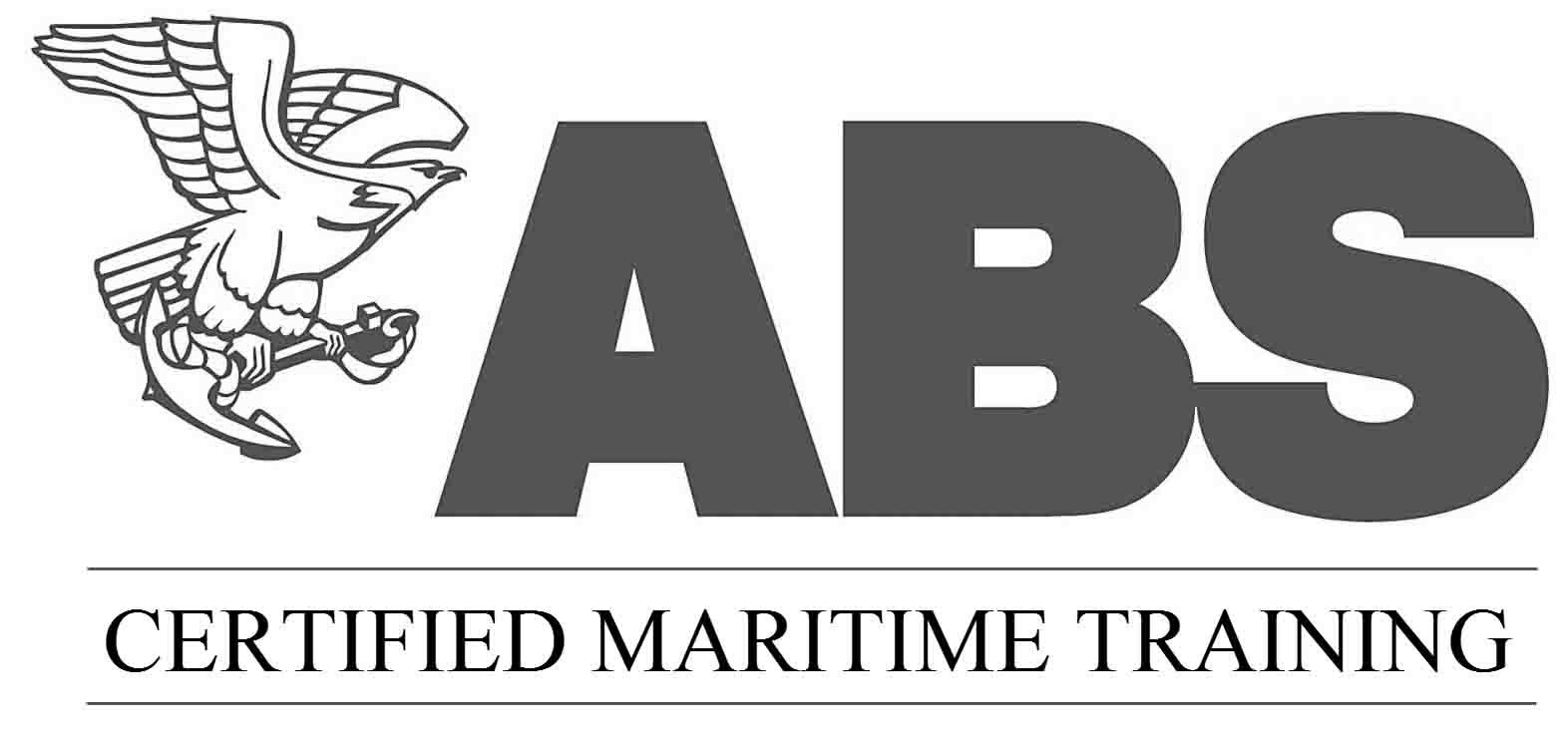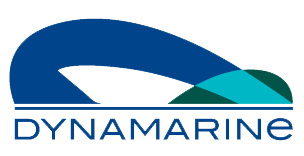Audit of STS Service Providers on behalf of Tanker Operators
Following information convey a description of the new concept referred as auditing of Service providers on behalf of tanker operators.
It describes the concept, process and presents answers to fourteen frequently asked questions.
Should you wish to receive more information please e-mail us at info@onlinests.net.
Background
Trading opportunities in new locations have led to the continuous growth of Ship-to-Ship transfer operations globally in recent years.
This is a healthy and welcome development allowing positive economic growth across the industry. New local STS service providers have developed to provide
totally new trading/lightering needs or to compete with existing organisations that offer such services.
Increased competition can have positive effect in improving the services available at a specific location. In the specific industry sector, it has been
evidenced that the existing competition can encourage the emergence of low cost, substandard STS providers to the detriment of both the industry and the
environment and with negative implications for the worldwide standing of the industry.
These organisations have the opportunity to survive and expand due to the fact that there are no adequate resources in place from their contractors, to
evaluate their performance prior to or after each STS operation.
Prudent tanker operators find the current ease of entry to the industry by substandard providers worrying. They cannot directly influence the appointment of
STS service providers since it is the responsibility of the trader/charterer or cargo receiver, yet have to take full statutory liability and contractual
responsibility for STS operations thereby subsidising the substandard providers by protecting them from any liability resulting from their errors.
DYNAMARINe proposes an auditing scheme on behalf of Tanker Operators, based on IMO’s SOLAS and MARPOL regulations, OCIMF Guidelines, relevant ISO standards and OSIS data.
Any audit undertaken by DYNAMARINe is not just a simple review of the SPSA system, records and equipment; it seeks to establish and maintain a continuing link between
the tanker operator and the STS service provider to ensure safety and environmental protection during STS operations.
The Baseline Criteria
It is important that the management system of the STS Service Provider is consistent and follows the latest industry standards. The Self-Assessment scheme developed by OCIMF
identifies 13 elements that address Management System KPIs towards adopted policies and procedures. Each element includes 4 stages and each stage includes a number of KPIs.
The level of compliance with these KPIs indicates the general safety culture, the preparedness and the quality of the services provided. The expected level of compliance
will in practice depend on the resources available to a service provider linked to the size of the organisation and the number of operations conducted on a regional or
worldwide basis. Tanker Operators consider that it is essential to establish a minimum level of compliance, as a base line, for a prudent company.
The figure below shows the baseline as proposed on behalf of Tanker Operators. This figure shows the minimum compliance level considered appropriate for each individual
element of SPSA [OCIMF STS Service Providers Self-Assessment Guide]. This baseline may be revised in the future in the light of experience, OSIS and industry feedback.
The conceptual basis for this baseline is explained in detail in the referenced paper.

In addition to the review of the management system, the audit includes a visit to the STS Service Provider’s equipment stations to verify the condition of the equipment,
it’s storage and maintenance facilities and consistency with the examined management plan.
Through the assessment tool provided by DYNAMARINe, the Master of a ship evaluates the quality of the services of the STS service provider after each STS operation.
Ship operators maintain a transparent system, regularly audited along with TMSA audits by oil majors, based strictly on statutory requirements, environmental
protection and safety criteria. The system handles this information appropriately and according to requirements.
The feedback from masters that are reported to OSIS will be utilized during the audit and any issues arising will be discussed. Furthermore, issues regarding the
location assessment will be discussed and information will be exchanged for the tanker operators to be aware and properly prepared for the hazards as well as the
available recourses in each location.
Tanker operators’ availability of resources for auditing STS service Providers.
Individual tanker operators do not have the resources to audit STS service providers. The resources they have are limited to their master’s ability to monitor
individual STS operations. The operator’s direct involvement starts from the nomination of the provider by the charterer until the commencement of the
STS operation - usually between two hours and two days.
The choice of service provider rests with their contractors, subject that baseline criteria are satisfied.
Ship operators do not have the right to choose the STS service provider, however they have the right to reject the services of a third party on the basis of justified grounds
associated to environmental protection and safety of the operation. As long as ship operators bear a responsibility on safety and carry the liability if pollution
occur they have the right to request that the minimum required standards are provided by the STS service providers involved.
Validity
The validity of the final audit report is strongly related to the feedback available through OSIS and may be extended or withheld accordingly.
The approval may be terminated when there is evidence, or strong indications, of inconsistency or noncompliance with the requirements of the
Tanker Operators or the IMO and OCIMF guidelines. In cases where no feedback is available through OSIS the validity is set to one year when a follow up audit should be performed.
Confidentiality
Tanker operators want to ensure that the outcome of the audit fulfils the base line criteria and not in the raw information itself.
This means that there should be no conflict of interest in establishing a confidentiality regime regarding sensitive commercial, technical or other data.
These issues will be discussed and clarified before the initiation of an individual audit. It is obvious that all information that will be shared with DYNAMARINe prior,
during and after the audit, will be strictly confidential and will be used only for the purpose of the audit. All the material (including photos, documents,
records and the final report) will be available to the audited party. Tanker Operators will have access only to a different version of the audit report which does
not contain confidential information, not relevant to the need of the tanker operator.
NOTE: During a past STS operation a Service Provider may have provided confidential information to DYNAMARINe or to one of our client. This information was provided only for the scope of the particular operation. When requesting an audit on behalf of Tanker Operators, the STS Service Provider agrees that such information will be considered as part of the audit material.
NOTE: During a past STS operation a Service Provider may have provided confidential information to DYNAMARINe or to one of our client. This information was provided only for the scope of the particular operation. When requesting an audit on behalf of Tanker Operators, the STS Service Provider agrees that such information will be considered as part of the audit material.
Members supporting this service
The following companies are currently supporting this initiative:
- Arab Maritime Petroleum Transport Co
- Andriaki Shipping Co. Ltd.
- Athenian Sea Carriers Ltd.
- Bernhard Schulte Shipmanagement (Cyprus) ltd
- Bernhard Schulte Shipmanagement (Singapore) Pte Ltd
- Bernhard Schulte Shipmanagement (UK) Limited
- Bernhard Schulte Shipmanagement (GR) Limited
- ZEABORN SHIP MANAGEMENT TANKER GMBH & CIE KG
- Dorian Hellas SA
- Dorian LPG Management Corp.
- IONIA MANAGEMENT S.A.
- GRACE MANAGEMENT S.A.
- Kuwait Oil Tanker Company
- Maran Tankers Management Inc.
- Optimum Ship Services Ltd.
- Spring Marine Management S.A.
- Thenamaris (Ships Management) Inc.
- TMS TANKERS LTD
- TMS CARDIF GAS LTD
- Truong Phat Loc Shipping Trading Joint Stock Company
- Tsakos Columbia Shipmanagement ("TCM") S.A.
- Western Shipping PTE LTD.
- Byzantine Maritime Gas
Frequently Asked Questions
The following questions are answered below in order to ensure transparency of the scope and process of this proposed process.
1. Are the current applicable standards adequate to ensure healthy competition among STS Service Providers?
The applicable standards are adequate to ensure healthy competition. IMO’s SOLAS and MARPOL Conventions and the OCIMF Guidelines which provide clear, and accepted,
best standards across the industry can provide standards for a healthy competition among STS service providers.
There is an obvious cost if a prudent service provider wishes to maintain standards at a high level. Such costs can be fully justified should the industry as a
whole (traders/charterers, prudent service providers and tanker operators) unifies on the basis of a standardised, transparent and well-structured process which
will provide the same standards across the industry. However, fair competition amongst STS Service providers cannot rest solely on safety standards. Other essential
considerations have to be taken into account.
2. What is the scope of approvals on behalf of Tanker Operators
The intention is to make available to industry stakeholders the approved STS service providers that satisfy an agreed set of minimum criteria regardless of their
area of operation. This process can best take place under a standardized auditing regime applying to all STS Service providers and undertaken by an independent
organisation established to avoid the risk of any conflict of interest.
Currently, in selected STS operations, tanker operators who are clients of DYNAMARINe have the option to suggest to their charterers the use of approved
audited service providers. This process is already in place. In the future, tanker operators will accept only approved providers.
Every STS service provider that maintains standards above the set minimum, should be entitled to be approved on behalf of tanker operators. Competition amongst
the approved STS service providers will be based on the quality of their services and, tanker operators will be able to rely that standards will be maintained.
STS service providers that do not fulfil the minimum standards will not be will not be approved by tanker operators.
Following completion of the audit the STS Service providers will receive a report by DYNAMARINe which will be available for distribution by them to any interested parties.
Sample report
Sample report
3. Why is there a need for "base line criteria"?
Assessment criteria must look beyond minimum requirements. Depending on the size (annual operations, locations of activities, availability of subcontractors)
of an STS service provider’s organisation, there are processes aimed to assist the control and assessment of the services provided.
Ship operators have the need of services that satisfy the minimum requirement and this is outlined through the baseline criteria which are subject to further discussion
with the industry. This process does not seek to identify who is the best service provider. On the contrary it seeks to identify the substandard ones.
4. Do audits conducted by oil majors provide an assurance to the tanker operator?
Only a small percentage of charterers have the resources available to ensure that contracted STS service providers actually provide high quality services to
tanker operators with respect to safety, reliability and efficiency. The audits conducted by the few charterers that undertake them are not transparent and
the results are not available to tanker operators. The fact that a contract is in place, indicates that a due diligence process has been undertaken on behalf
of the charterer. Evidence indicates that this is not enough for the tanker operator who ultimately bears overall responsibility for the individual cargo transhipment.
5. Can a charterer/ trader rely on an audit conducted by another organisation?
Through lack of resources most charterers/traders/cargo receivers may have to rely, when selecting an STS service provider on the fact that the organisation has been previously
audited by a charterer who had performed a physical audit of the STS service provider. Such informal material during a selection process cannot be considered to be the rational
and justified "exercise of due diligence".
6. What is the duty of a charterer/ trader prior appointing an STS service provider?
The most important fact in STS operations is to ensure the prevention of pollution and safety, wihich is a duty of the tanker operator and his Master.
Charterers have the duty to ensure, when appointing an STS Service provider, that the tanker operator and his master will receive the expected assistance
during the STS operations and have the approved STS equipment in place to successfully undertake the specific transfer. The auditing scheme proposed herewith
is designed to satisfy this requirement.
7. Why auditing on behalf of Tanker Operators?
A group of prudent tanker operators have taken the initiative to support DYNAMARINe in providing an alternative solution to charterers/traders intended to benefit of all
involved STS stakeholders. Their initiatives is based on the following consideration:
"Ship operators do not have the right to choose the STS service provider, however they have the right to reject the services of a third party on the basis of justified grounds associated to environmental protection and safety of the operation. Such rejection may inevitably lead to commercial complications, increase of demurrages and poorer relations between the ship operator and the charterer. As long as ship operators bear a responsibility on safety and carry the liability if pollution occur they have the right to request that the minimum required standards are provided by the STS service providers involved."
Tanker operators who make use of the DYNAMARINe services, share knowledge regarding safety issues and best practices. They are not competitors on safety issues and therefore there are strong grounds for believing that an auditing process undertaken on behalf of tanker operators will make a significant contribution to the industry. The auditing scheme does not intend to have the tanker operator undertake the duties appropriate to the STS service provider. The structure of the entire concept seeks to make this very clear. The intention is to have knowledge and information available to be able to recognize and isolate substandard services. DYNAMARINe believes that through this transparent auditing concept tanker operators, prudent STS service providers and charterers will share a common interest which is the enhanced environmental protection and safety.
"Ship operators do not have the right to choose the STS service provider, however they have the right to reject the services of a third party on the basis of justified grounds associated to environmental protection and safety of the operation. Such rejection may inevitably lead to commercial complications, increase of demurrages and poorer relations between the ship operator and the charterer. As long as ship operators bear a responsibility on safety and carry the liability if pollution occur they have the right to request that the minimum required standards are provided by the STS service providers involved."
Tanker operators who make use of the DYNAMARINe services, share knowledge regarding safety issues and best practices. They are not competitors on safety issues and therefore there are strong grounds for believing that an auditing process undertaken on behalf of tanker operators will make a significant contribution to the industry. The auditing scheme does not intend to have the tanker operator undertake the duties appropriate to the STS service provider. The structure of the entire concept seeks to make this very clear. The intention is to have knowledge and information available to be able to recognize and isolate substandard services. DYNAMARINe believes that through this transparent auditing concept tanker operators, prudent STS service providers and charterers will share a common interest which is the enhanced environmental protection and safety.
8. Who bear the auditing costs?
The auditing costs are met by those being audited, i.e the STS Service Providers. Furthermore, charterers/traders carry no cost and will expend minimum in-house resources
in supporting the process.
9. What are the benefits from this proposed methodology?
There are mutual benefits for those STS Stakeholders who support and participate in this audit scheme. Charterers/ Traders/ Cargo owners will appoint STS service providers
on the basis of the satisfactory outcome from the minimum baseline criteria and subject to the examination of a report that will be provided by the STS service provider
to them. In this way, they have exercised “due diligence” to an extent that is both adequate and, acceptable as it is conducted by an independent third party and finally
transparent. STS Service providers will receive a report on the outcome of the audit and will, if they wish, be able to circulate the findings to current or potential
clients as a clear independent indication of the quality their management systems and procedures. Furthermore, the STS Service providers will establish a direct link
with the ship operators, through DYNAMARINe, and also, subject to the assessment feedback from the Master at OSIS, fewer subsequent audits.
Tanker operators will receive confirmation that audited STS service provider satisfy the base line criteria and will provide the expected service to the vessels
involved in accordance with industry regulations and requirements. Tanker operators will also receive a report, which may differ in detail from the one provided to
the STS service provider, to be use during their OCIMF TMSA audits.
10. Why being audited by DYNAMARINe?
DYNAMARINe is a third-party company which has no commercial conflict of interest in undertaking this task. Furthermore, it has access to OSIS database which includes
Master feedback comments on STS service provider performances. Since 2011 DYNAMARINe has evidenced more than ten thousand STS operations in about 220 locations worldwide.
DYNAMARINe has sought to link tanker operators undertaking STS operations, to share knowledge on safety and best industry practice. It employees accredited personnel,
qualified in management audits and has the ability to communicate the outcome of the audits directly to tanker operators.
Individual tanker operators do not have the resources to audit STS service providers. The resources they have are limited to their Master’s ability to monitor individual
STS operations. The operator’s direct involvement starts from the nomination of the provider by the charterer until the commencement of the STS operation - usually
between two hours and two days.
11. Is DYNAMARINe an STS Service Provider?
Neither DYNAMARINe can offer services of an STS Service Provider due to its profile, nor STS Service Providers can offer the services of DYNAMARINe since there will
be a conflict of interest between offered services.
12. Do auditors of STS Service Providers need to have Seafarers’ Experience?
The industry standards are formed in such a way that can be evaluated by individuals with knowledge on management systems. The audit of the Safety Management System,
on the basis of OCIMF self-assessment guidelines, does not include any KPI associated with competency assessment of mooring masters by the auditor of the management system.
As an example, it worth mentioning that there are several management systems in the maritime industry, such as the ISM, TMSA or the SPSA that are designed and maintained
by personnel that have no seafarer’s experience, within the shipping companies. There are also STS service provider organisations that outsource the formation and
maintenance of their management system to companies that offer these services. Also, the ISO 9001 systems maintained by various organisations associated in maritime
businesses are being reviewed and audited by personnel with relevant knowledge and not mariners.
DYNAMARINe avails the required resources and capacity to execute such audits with success, as already proved by the feedback received from the already conducted audits
to STS Service Providers.
13. Who are the Auditors?
DYNAMARINe employ accredited lead assessors who are fully ABS certified, by DYNAMARINe ACADEMY to undertake audits of STS service providers.
An important requirement of an audit is professionally reporting the outcome to the service provider, and all the assessors are English speaking and
fully trained in communication management.
14. Why this industry requires high quality standards on STS operations on a global Scale?
The public opinion may be reluctant on cargo transfers by means of STS due to a potential pollution. The fact that STS operations take place near the shore in some
locations, is attributed to positive past performance records. An STS incident, anywhere in the world would affect this industry sector on a global scale and hence
the existence of high quality standards is required.
15. Can a ship operator or his master reject an STS service provider?
Ship operators do not have the right to choose the STS service provider, however they have the right to reject the services of a third party on the basis of justified
grounds associated to environmental protection and safety of the operation. Such rejection may inevitably lead to commercial complications, increase of demurrages
and poorer relations between the ship owner and the charterer.



